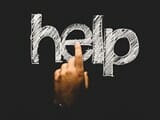Bipolar Disorder And Relapse
Even if you take your medication consistently there is no guarantee that it will prevent a bipolar episode.
Relapses will happen.
This doesn’t mean that you must resign yourself to embarrassing and unpleasant hospital stays for the rest of your life. There’s hope.
If you can learn how to identify those early warning signs, it is possible to limit, and in some cases, prevent a manic or depressive episode.
Remember, everyone’s triggers are different.
Bipolar Relapse Triggers
It is estimated that at least 75 percent of people diagnosed with Bipolar Disorder will experience repeated episodes throughout their lives. This means that they will experience manic highs and depression, even when following their treatment plan.1
When a relapse occurs, and you believe you have been doing everything right it can be devastating. The feeling of failure can be almost unbearable, and this alone can bring on depression.
Along with taking your meds every day, you need to know what your triggers are if you want to prevent frequent relapses.
Some of the common bipolar episode triggers – include:
- Not getting enough sleep every night (e.g., less than 6 hours, although the total number of hours needed can vary from person to person)
- Not having a daily schedule/routine
- Alcohol use
- Illicit drugs use
- Major life events (e.g wedding, new baby, death in the family, illness)
- Other stressful life events or changes in daily routine (e.g. starting a new job, moving, job loss, a vacation)
I’ve found that too much caffeine can trigger a relapse, but this isn’t necessarily true for everyone.
While you can’t avoid every situation that might trigger a relapse, knowing what they are ahead of time can help you be prepared.
Warning Signs for Bipolar Relapse
The signs of a bipolar relapse aren’t always easy for you to recognize, especially for mania. Often it’s your close friends and family that notice the change in your behavior, before it becomes a full blown manic episode. This is one of the reasons why it is important to have at least one or two people close to you on your support team.2
If you can catch the warning signs early enough, it might be possible to minimize or prevent the oncoming episode. Some common early signs that might indicate the onset of mania can include:
- Sleeping less than usual (and feeling rested/not feeling tired or lethargic)
- Rapid speech
- Excess energy
- Distracted/irritable
- Racing thoughts
- Making rash decisions/poor judgement
- Exhibiting risky behaviors
The symptoms that could signal that start of bipolar depression often include:
- Loss of interest in activities
- Lack of energy
- Constantly tired
- Anxiety
- Various body aches
- Neglecting to take care of yourself (e.g., abandoning hygiene)
- Feeling sad or having sad thoughts
You might also notice that you don’t want to spend time with friends and family. Concentrating on any task might also be difficult.
The Journal of Psychiatric Practice published a review that found your risk for a bipolar episode relapse is highest if you still experience some symptoms despite your medications. Talk to your doctor if this applies to you. It could be a sign that your treatment plan needs to be adjusted.
How to Learn Your Early Bipolar Relapse Signs
You won’t learn all the warning signs that signal a bipolar relapse the first time it happens. It will take time, patience and effort. It’s also worth it in the end. Here are a few tips on how to limit the severity of the episode and possibly prevent future ones from occurring.
- Know what type of Bipolar Disorder you have.
There are differences between Bipolar Disorder I and Bipolar Disorder II. The treatments are not the same, and this is important.
- Think about your previous manic and depressive episodes.
It’s often unpleasant to think about, but recalling past episodes and the accompanying symptoms can help prevent the next one. Try to remember when your early symptoms first appeared and when the episode was “the most severe”. Also ask yourself, when you hit the “point of no return”.
- Create a “mood chart”.
Even though it might seem silly, a daily mood chart can be an invaluable tool in preventing relapses. It can also aid in recovery, though you will always be “bipolar”. If you don’t want the embarrassment of a paper chart lying around, there are several apps and charts available online. I also use my chart to keep track of my daily meds. This way I can see which ones are working and when I need to talk to my doctor.
- Have coping skills.
This should already be a part of your treatment plan. Everyone has their own unique way of dealing with stressful situations. It is up to you and your physician to create your own. Coping skills also include being aware of your feelings and behaviors. This way you’ll notice when something is wrong before it turns into depression or mania.
- Support is crucial.
Bipolar Disorder is not an illness that you can manage alone. You need support. Let a few close friends and family members know that you are bipolar, and ask them to let you know if they see a change in your behavior or mood. If you are alone, there are support groups. Your primary care provider, local yellow pages and even a quick internet search can link you with ones in your area.
- Know the difference between normal and Bipolar.
This can be tough. Even when you’re not in the middle of an episode, you won’t always feel or behave the same. You’ll still get overly excited at times, feel irritable and even lose your temper. Everyone does. While you don’t want to panic every time your mood changes, it’s also important not to ignore it. There are 3 things you can ask yourself when this occurs that can make it easier to tell if these are early warning signs.
- Do your feelings and behavior match the situation?
- Is your reaction characteristic of your regular behavior?
- Are these feelings or behaviors consistent throughout the day?
If you answered “no” to any or all of these questions, it could be an early warning that your bipolar symptoms are returning.
Getting Past Bipolar Disorder Relapses
Nobody is perfect and relapses will probably happen. It is a part of being bipolar, but it doesn’t have to control your life.
Take your medications as prescribed. Try to limit the amount of stress in your life. Know your triggers and how to spot the symptoms warning of a relapse. Don’t forget to use your support system. Being bipolar is nothing to be ashamed of. If you follow these guidelines as best as you can, it is possible to limit the severity of the relapse and possibly stop it before it starts.
As always, talk to your primary care provider anytime you feel like your bipolar treatment plan is no longer effective.
References:
1https://ncbi.nlm.nih.gov/pmc/articles/pmc1797163
2https://psychcentral.com/blog/what-you-need-to-know-about-relapse-in-bipolar-disorder/
 Medically reviewed by
Medically reviewed by 



7 Comments
I’d just like to say that there is no shame in being bipolar. I want to encourage people to stay positive about their condition. Yes it is sometimes something that can get in the way of normal life, but it is also something real. Never feel embarrassed about something that is what it is. Can you help it if your emotional state is highjacked every now and then? Yes and no. Yes if you know the way of handling it. No if you don’t. Either way, worrying about what other people think about your condition is in no way beneficial to you. Remember: you are who you are. Stay proud of that regardless of the good. The bad. And the ugly. Much love.
What is normal? Most of my life in hindsight I have had BP & always assumed I was a bit eccentric, sometimes high on life (as I called it) with occasional depression.
I was diagnosed in 2013….didn’t believe it. Nobody warned me that BP gets worse untreated. So I researched away & none of the descriptions really fit. Nah not BP1, not really BP2 & unfortunately not Cyclothymia.
One day I came across a blog by Natasha Tracy & realised my symptoms were like hers. Ultra Rapid Cycling with mixed episodes, this is really unpleasant & extremely hard to cope with as sometimes you will even have combinations of some parts of mania & parts of depression.
My point…I wish someone had warned me that even if medicated you can still suffer relapses. As I had been really good for about a year, then started having mild rapid cycling symptoms or a couple of days of bed ridden depression or a couple of days of hypomania or terrible irritability.
I WAS ABSOLUTELY DEVASTATED.
I was doing everything right, religiously taking meds, tracking mood, I was so heart broken.
I have added in Fish oil, Vitamin D & Charlotte’s Webb CBD Oil & so far so good…almost 4 weeks of stable mood.
I hope this helps long term. And I guess I have to stay positive about the stable patches rather than being so dreadfully disappointed by the now hopefully occasional relapses.
I hear you. Rapid cycling is just about the worst thing ever and the mixed states are just weird. I knew relapses could happen but was doing so well for months and then bam! it’s back just like that. I thought I would be stable as long as I took my meds and stuck with my treatment plans but nope. There were warning signs that I did not recognize but now do. I just started feeling a little bit better but fear the smallest thing may trigger a relapse.
What this article neglects to say is that Bipolar states can start spontaneously i.e. no triggers. This is even when one is fully compliant with medication. In my case this is particularly true of Depression. Also it may manifest with purely physical symptoms initially. Mood fine but no energy, exhausted. It may take 3 months for the mood symptoms to appear. What causes this breakout? It seems to arise out of some inner rhythm but no-one seems to know about this occurrence let alone why?
HI,
I am diagnosed with bipolar disorder in 2002. i was taking medication. 2008 i has a relapse. and in 2017 I stopped medication and lead to relapse. I am taking now rospetril plus 2 mg tablet before sleep. i have no manic episode. but i feel depresseive symptoms like loss of energy, tendancy to sleep. feeeling lack of happiness and interest in day to day activities, carelessness. There is lot negative thinking poping up in my mind. I realise the racing thoughts developing in my mind but i cant control it. but i can mange it going worst. I am roaming always behind my kid (2 years) after my work. Lot of anxiety on my kids future. I want o be cared and recognised by others. I am leading a normal life with my kid and wife. Wife is supporting me. I am getting up late in the morning.
Is there any techniques any one can suggest me to improve health and energy level. I tried for a excercise. But due to my laziness i couldnt continue
Its my 17th year of bipolar type2. Had a terrible relapse 7 years ago I had to quit job, hospitalized, ECT, twice divorces too. Since the last 3-4 years I started having cyst, fibroid, short of breath, purging, joint and muscle pain, blurred vision, tinnitus and recurring sciatica. Can’t move much without feeling really exhausted and breathless. Was diagnosed with SLE..but later it was changed to fibromyalgia..then its piriformis syndrom..now pinched nerve. But after reading this article…I want to believe its all bipolar and its meds after all. Having to travel abroad end of January next year for 2 weeks is really bugging my head since it involves a lot of walking from places to another..climate transition..13 hrs flight and long distance inbound journeys worries me so much ????
At 51 (2017) I was diagnosed with bipolar 1. I was in the military from 1990-1998. I suffer from ptsd. I spent part of last year in the hospital and that was difficult. My wife is very supportive with everything I have put her through. I’m on 5 different types of meds and still struggling. My wife keeps telling me to keep my chin up. I know it will be a life long struggle